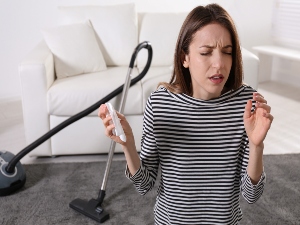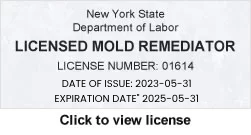
Living with allergies can be challenging, especially when it comes to maintaining a clean and allergen-free home.
Carpets, in particular, can harbor dust mites, pet dander, pollen, and other allergens that trigger allergic reactions. However, with proper care and maintenance, carpets can still be enjoyed by allergy sufferers. In this article, we will provide valuable tips for carpet care that will help create a healthier living space for those with allergies.
10 Tips For Managing Allergens
- Vacuum Regularly: Regular vacuuming is crucial for minimizing allergens trapped in carpets. Use a vacuum cleaner equipped with a high-efficiency particulate air (HEPA) filter, as it can effectively trap microscopic allergens. Aim to vacuum at least twice a week, paying special attention to high-traffic areas and corners where allergens tend to accumulate.
- Practice Proper Vacuuming Techniques: Slowly move the vacuum in overlapping passes to ensure thorough coverage. Remember to vacuum both horizontally and vertically to capture allergens lodged deep within the carpet fibers. Additionally, empty and clean the vacuum canister or replace the bag regularly to prevent allergens from re-circulating.
- Consider Steam Cleaning: Periodically steam cleaning your carpets can help eliminate allergens and refresh the fibers. Steam cleaning uses hot water and steam to penetrate deep into the carpet, effectively killing dust mites and bacteria. However, ensure that your carpet is compatible with steam cleaning and follow the manufacturer’s guidelines to prevent damage.
- Use Allergen-Reducing Carpet Treatments: Explore allergen-reducing treatments available in the market. These treatments, applied to the carpet fibers, can help minimize allergen buildup and create a barrier that prevents allergens from becoming airborne. Look for products specifically designed for allergy sufferers and follow the instructions carefully.
- Implement a No-Shoes Policy: Shoes can track in pollen, dust, and other allergens from the outdoors. Implementing a no-shoes policy in your home can significantly reduce the number of allergens introduced to your carpets. Provide a shoe rack or designated area near the entrance for family members and guests to remove their shoes.
- Regularly Clean Pet Areas: Pet dander is a common allergen that can settle in carpets. If you have pets, take extra care to clean their living areas, such as pet beds or favorite spots on the carpet. Regularly wash pet bedding and vacuum the surrounding areas to minimize the presence of allergens.
- Invest in Allergy-Friendly Carpet: Consider replacing your current carpet with allergy-friendly options. Look for carpets labelled as hypoallergenic or low pile, as they are less likely to trap allergens. These carpets are often easier to clean and maintain, making them an excellent choice for allergy sufferers.
- Professional Carpet Cleaning: Periodically enlist the help of professional carpet cleaning services. Professionals have specialized equipment and expertise to deep clean carpets, extracting embedded allergens and dirt. Schedule professional cleanings at least once or twice a year, depending on the level of foot traffic and the severity of your allergies.
- Maintain Proper Indoor Humidity: Excess moisture can lead to mold growth, which can trigger allergies. Use a dehumidifier to maintain optimal indoor humidity levels, typically between 30% and 50%. This helps prevent mold growth in carpets and other areas of your home.
- Regularly Clean Air Ducts: Air ducts can accumulate dust and allergens, which eventually circulate throughout your home, settling on carpets. Have your air ducts professionally cleaned and inspected to ensure clean air circulation and minimize the introduction of allergens.
In Conclusion…
With these carpet care tips, allergy sufferers can create a healthier home environment, free from the burden of allergens. Regular vacuuming, steam cleaning, and allergen-reducing treatments will significantly reduce the allergen load in carpets. Combine these efforts with a no-shoes policy, allergy-friendly carpet choices, and professional cleanings to enjoy clean and fresh carpets while minimizing allergic reactions. By implementing these practices, you can create a comfortable and allergen-free space to thrive in.
By Sharon Koehler. This article is one of a series of articles written and published on behalf of Surface Care PRO Partners.








